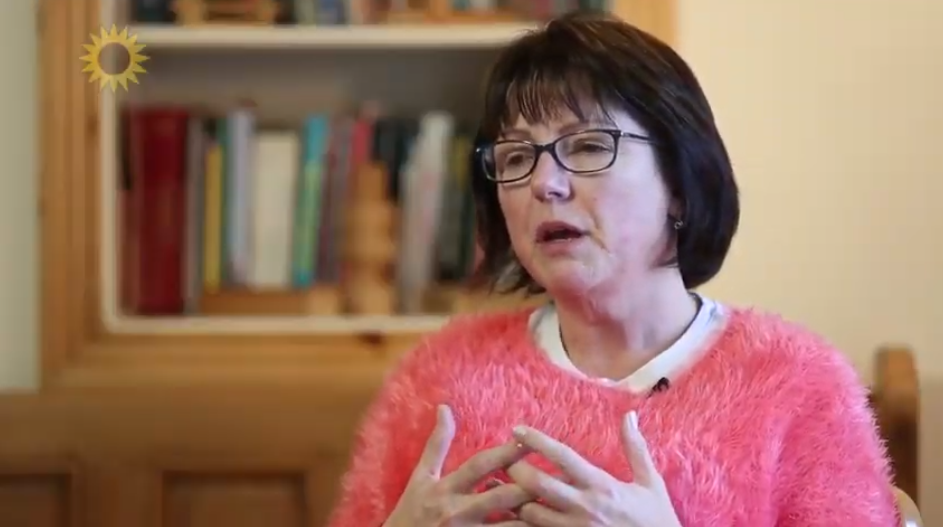Planning for the Future
When any illness enters our lives, it can be difficult to think about practical arrangements for the future. When a diagnosis of dementia is confirmed it is important to think about legal and financial affairs as early as possible.
A diagnosis does not automatically mean that a person cannot make financial and legal decisions. In this section you can read about steps you should consider. Take time to think about this area of your life. Don’t delay, get the information and advice you need to make decisions which are important now and into the future.
Financial planning

It is important to consider and seek advice about financial affairs as soon as possible.
When a diagnosis of dementia is made it is very important to consider both legal and financial areas as early as possible. In the early stages of this condition a person with dementia can outline their wishes, put their affairs in order and if they want to, plan for the future.
Financial Supports for Carers:
If you are caring for a loved one with dementia, there are currently a number of payments that you may be able to apply for. There is a set criteria which must be met to qualify for the payment. To get specific information about which supports apply in your situation, you will need to contact the Department of Employment Affairs and Social Protection. You can also contact the
Citizens Information service who provide free advice about these payments and can help you to complete the forms. Call them or drop in to your nearest centre, contact details are below.
For further information:
- Talk to your bank, financial institution or an independent financial adviser.
- Read our resource
- Irish Hospice Foundation provide a Think Ahead Planning Pack to help you put you plan, for more information visit www.thinkahead.ie.
- Call our National Helpline at 1800 341 341 or email [email protected]
- Department of Employment Affairs and Social Protection – visit http://www.welfare.ie/en/Pages/Carers.aspx
- Contact the Citizen’s Information Service at 0818 07 4000 or www.citizensinformation.ie
- You can contact Age Action on 01 475 6989 for information on Entitlements and grants. www.ageaction.ie
Legal Planning

When a diagnosis of Alzheimer’s disease or a related dementia has been made, it can be difficult to think about the future, but it can also be reassuring to know that the person you are caring for has made their wishes and preferences clear. There are a number of important legal arrangements which should be considered as early as possible.
It’s important for everyone to plan for the future, but legal plans are especially important for a person with dementia. The sooner planning starts, the more the person with dementia may be able to participate.
A person with dementia in the early stages of the condition may still be able to make plans in this area. A person in middle to later stages of the condition may not be able to do this. If you and your loved one are not sure about whether these decisions can be made, check with your doctor or solicitor.
It's good to have things sorted out, I feel better to have it done and know that it is done.
Person with dementia and member of the Irish Dementia Working Group
If possible, your loved one with dementia should:
- Visit a solicitor to make a will if they have not already done so.
- Create a decision making assistance agreement or co-decision-making agreement to help them with decisions on certain things. ( This is done through the Decision Support Service DSS)
- Choose a person to manage legal, financial and certain personal care decisions if they are not able to do this for themselves in the future. This involves setting up an Enduring Power of Attorney (EPA), which is done through the Decision Support Service.
In regards to making a will and creating an EPA, professional legal advice is required to make the will, and with regards to making an EPA, there is a process involved For more information visit the DSS website . The solicitor must be satisfied that the person understands what they are doing and the effect it will have, and is not under undue pressure from anyone else.
When a person has a diagnosis of dementia, a doctor or another healthcare professional is needed to assess capacity and confirm that the person is able to enter into the EPA. The EPA must be registered with the Decision Support Service (DSS)
We were told to look into our legal and financial affairs, we put it on the longer finger and then (my wife)'s dementia progressed and she wasn't able to participate. It was much more difficult. My advice is do this as early as you can, for both of you.
Anonymous, Kildare.
Making a Will
A will is a legal document that outlines, in writing, the wishes of a deceased person for their possessions and property after their death.
To make a will, a person must be deemed to “have capacity”, that is, they are considered capable of making decisions about their financial and legal affairs. For this reason a person with dementia who wish to make a will or change their will should seek legal advice from a solicitor as soon as possible after a diagnosis, while they still have decision making capacity. As a loved one, you can support the person to ensure they have an up to date will in place. If necessary a doctor can confirm whether the person has decision making capacity to make a will. Once the person is deemed to no longer have capacity, they will not be able to make a will.
To make a will, the person with dementia must:
- Contact a solicitor – If the person with dementia does not have a solicitor, you can search for a solicitor in your area through The Law Society of Ireland or through the Solicitors for the Elderly.
- Arrange for assessment through the GP – The GP will need to provide written medical opinion that confirms the person with dementia is capable of understanding the will and the implications at the time of signing. This is essential to prove that the person with dementia is of sound mind at the time of making their will.
For further information:
- Talk to your GP and solicitor
- If you do not have a solicitor contact:
- Call our National Helpline at 1800 341 341 or email [email protected]
- Read our resource
- The Think Ahead website also provides information to help you to put your legal and financial affairs in order. For more information visit: www.thinkahead.ie
- Contact the Citizen’s Information Service at 0818 074000 or www.citizensinformation.ie
Enduring Power of Attorney
An Enduring Power of Attorney (EPA), is a legal document that sets out who a person would like to manage legal, financial and certain personal care decisions if they reach a point where they cannot make these decisions independently.
This person is called an attorney. Family members or friends can become an attorney. Setting up an EPA is a good idea. It means a person state who they want to manage a specific area of their lives (e.g. financial affairs) if they no longer have the capacity to do this.
Important points to know about creating an EPA include:
- The document must be created while your loved one can still manage their legal and financial affairs. Once it is set up, nothing will happen until they reach a point when they cannot manage their legal and financial affairs anymore
- There are a number of steps involved.
- If you want to apply online, you need a myGovID. Alternatively you can verify your identity by sending in relevant documents to the DSS by post.
- You can get more information and the forms that are needed to fill in by going to the decision support service website. Click HERE to visit their website.
- A solicitor is needed to sign a statement.
- The EPA must be signed in front of two witnesses.
- Once this is done, you have 3 months to send the agreement to the DSS
- Your loved one will need to get a medical opinion from their doctor and another healthcare professional confirming they understand the EPA and what it means when they sign the document
- They must tell certain people (spouse, children etc) that they are making an EPA and give them a copy.
- There is a fee to register the EPA- €30.
- They may qualify for legal aid to help pay for this.
- Their attorney will only begin to manage your legal and financial affairs when a medical report confirms they can no longer manage your affairs themselves. It costs €90 to notify the DSS of this.
- When they die, your EPA ends. Their will or lack of will takes over.
- Any EPA’s that were created before the 26th of April will continue to be managed by the solicitor and the courts. Any complaints on these EPA’s will be handled by the DSS.
If someone doesn’t have an EPA, you can apply to the courts for a Decision-Making Representation Order. The court will appoint a decision-making representative to make decisions on behalf of the person
For further information:
- Contact the Decision Support Service (DSS) for information and advice on creating a support arrangement
- Read our resource
- The Think Ahead website also provides information to help you to put your legal and financial affairs in order. For more information visit: www.thinkahead.ie
- Contact your GP, solicitor or legal aid
- Contact our National Helpline at 1800 341 341 or email [email protected]
Assisted Decision Making (Capacity) Act 2015
The Assisted Decision-Making (Capacity) Act 2015, is a new law that commenced on the 26th April 2023. It allows people to make legal agreements on how they can be supported to make decisions about their welfare, property, and affairs.
The Act established new decision-making arrangements to support people who have difficulty making decisions. makes a number of important changes to Irish law about what happens when people have difficulty with decision-making. These arrangements are;
- Decision-making assistance agreement
- Co-decision-making agreement
- Decision Making Representation order
- To go from one agreement to an agreement with more support, a new agreement must be completed and registered with the DSS.
- The Act also enables someone to plan for a time when they lose capacity. These are known as Advance healthcare directive and Enduring Power of Attorney.
The Decision Support Service is a new service that was established under the Assisted Decision-Making (Capacity) Act 2015. It is an information service and it is where the decision support arrangements are registered and checked.
For further information:
- Contact the Decision Support Service on 01 211 9750 or email [email protected]
- Read our resource
- The Think Ahead website also provides information to help you to put your legal and financial affairs in order. For more information visit: www.thinkahead.ie
- Contact your GP, solicitor or legal aid
- Contact our National Helpline at 1800 341 341 or email [email protected]
Ward of Courts
The new Assisted Decision Making (Capacity) Act commenced on the 26th of April 2023. The Wards of Court office have stopped accepting wardship applications. All current adult wards of court, will be discharged within 3 years.
If someone doesn’t have an Enduring Power of Attorney, you can apply to the courts for a Decision-Making Representation Order. The court will appoint a decision-making representative to make decisions on behalf of the person
For further information:
- Read our resource
- Visit Courts.ie for information on Ward of Courts
- The Think Ahead website also provides information to help you to put your legal and financial affairs in order. For more information visit: www.thinkahead.ie
- Contact your GP, solicitor or legal aid
- Contact our National Helpline at 1800 341 341 or email [email protected]
Planning health and care needs

It is a common misconception that an adult’s next of kin is entitled to make decisions including healthcare on their behalf. Next of kin simply means who to contact in an emergency.
At some point, in the future, your loved one’s dementia may prevent them from being involved in discussions about their care. This is due to the way dementia progresses.
Taking early steps to plan their care means that you as family and their health care team can be made aware of their wishes and preferences
Advance Healthcare Directive
An Advance Healthcare Directive is where you write down what you would like to happen in relation to the use of certain medical care treatments. This can sometimes be called a ‘living will’.
If your loved one creates an Advance Healthcare Directive, they can:
- select someone to speak for them as a designated healthcare representative if they can no longer speak for themselves;
- and or state what they would like to happen – and what they do not want to happen – regarding certain care treatments.
It is important to note that if they do not discuss or make plans in advance of their care that you do not have the authority to make healthcare decisions on their behalf. Their doctor will make the medical care decisions in accordance with their professional guidelines and taking into account what they know about your loved ones preferences and wishes. They can also speak to you about what you know your loved ones preferences and wishes are, to help with their overall decision.
How do I create an Advance Healthcare Directive?
Your doctor can help you to create your Advance Healthcare Directive and answer questions you may have.
There are forms that can help to write an Advance Healthcare Directive.
- You can get the Think Ahead: Speak for Yourself form at www.thinkahead.ie or from your local Citizen Information Centre (developed by the Irish Hospice Foundation).
- Your Advance Healthcare Directive must be signed by you, two witnesses and by your designated healthcare representative , if you decide to have one. More details can be found on the Decision support service website.
An Advance Healthcare Directive can be changed. It is important it is checked regularly (maybe once a year) to make sure it still reflects their wishes and preferences.
Transition into a nursing home
Many people with dementia live at home, with support, for the majority of their journey with dementia. Not every person with dementia will move to a nursing home, but many people do.
This can be one of the most difficult transitions for everyone involved. There are many factors involved, sometimes a move to a nursing home is planned over a period of time, and sometimes it happens suddenly. It takes time for the person with dementia and their family to adjust and to build a new routine.
There are a number of factors involved in moving to a nursing home. Below you will find some practical information, however if you would like to speak to someone to talk through this decision, call our free and confidential Helpline at 1800 341 341.
Understanding late stage dementia
- You may find it helpful to understand how dementia can impact a person during the final stages of the condition. Read our factsheet Understanding Late Stage Dementia
- You can also speak with your doctor or public health nurse about care needs and if a nursing home is an option that needs to be considered.
- You may experience feelings of grief and loss while caring for a loved one, read our factsheet Loss and grief when a family member has dementia for information and support.
Finding a nursing home
- The HSE provide a list of registered nursing homes in Ireland
- Our Helpline can also provide you with a copy of the HSE lists of nurisng home and a copy of our ‘Guidelines for Choosing a Nursing Home’ Call 1800 341 341 or email [email protected]
- Nursing Homes Ireland also provide a directory of nursing homes
- DSIDC booklet Finding a Suitable Nursing Home for a Relative with Dementia
- DSIDC booklet Specialist Care Units for People with Dementia in Ireland
Financial Support
- The Nursing Home Support Scheme, or Fair Deal, is the main financial support for the cost of nursing home care and this link will bring you to information about it and the application form.
- You can contact your local Nursing Home Support Office to talk to someone about your application.
- Your local Citizen’s Information Center can also provide help with completing your application
National Quality Standards for Nursing Homes
- The Health & Information Quality Authority is the body which oversees the implementation of nursing home standards and inspects nursing homes in Ireland to ensure they meet the standards.
- You can read a guide to Nursing Home Standards
- You can read inspection reports
Driving and Dementia

A diagnosis of dementia does not mean a person must stop driving straightaway. However, a diagnosis does mean that certain things must be done to continue to drive.
Most drivers with dementia accept that over time dementia affects their ability to drive safely. With guidance and support from family and healthcare professionals, they will engage with regular assessments
and limit their driving when required. Most people will also engage in planning to stop driving and decide themselves they no longer want to drive.
Once a diagnosis is confirmed, it is necessary to take certain steps. Talk to your doctor about these steps and they can guide you on each one.
- Inform the insurance company of the person who has been diagnosed. If you do not do this, their insurance may not be valid.
- Notify the National Driving Licence Service.
- They may need to complete an ‘on-road’ assessment. Your doctor or your insurance company may ask you to do this.
At some point, a person with dementia will stop driving. This can be a difficult step, however there are alternatives to driving which can work very well.
Some people with dementia feel relieved to stop driving and are comfortable finding new ways to get out and about. However, even people who willingly give up driving may feel sad and low in mood in the weeks and months that follow the decision. They may be irritable and defensive. It is important that their doctor is aware of any changes in mood and behaviour following the decision.
Family members and friends can help and support, things you can do include:
- Allow the person to talk about it if they want to, acknowledge it is difficult.
- Be positive, focus on the benefits that come with not having a car for example:
- no need to navigate traffic and find parking,
- no longer paying for car insurance, tax or fuel,
- no more organising or paying for car service and repairs.
- Encourage the person to see that it is still possible to get out and about and do things. Take the time to help them figure out new ways to travel. A mix of public and private transport services, family and friends can often provide realistic options. For example,
- some people set up an account with a local taxi company who get to know the person and their family and often offer an agreed rate for frequent use,
- Local bus services can be very useful and provide an opportunity to meet people,
- Sometimes friends and neighbours go to the same club or have the same hobby and are open to giving a lift.
- Highlight the Free Travel Scheme, which entitles anyone 66 years or older to free travel on public transport (bus, rail, DART and Luas) with some exceptions. Some private bus operators also accept free travel cards. The Department of Social Protection website provides a list of these companies.
- TFI Local Link bus services connect communities throughout rural Ireland as part of the TFI Public Transport Network. They form a network of affordable bus services for everyone who wants to travel to travel to or from local towns and villages. There are two different types of Local Link service: Regular Rural Bus Services and Door-to-Door Bus Services. Click HERE for local timetables for the rural bus service and the door-to-door service.
- Public Transport . Depending on where you live, the local bus or train service might work well. TFI has partnered with Invisible Disability Ireland to launch the “Please Offer Me a Seat” Badge and Card for people with invisible disabilities to use when accessing public transport. The “Please Offer Me a Seat” badge and card ensures that people with hidden disabilities have a seat in priority areas on public transport.
For more information
- Speak with your doctor or health care professional
- Read our factsheet
- For information about the on-road assessments read the NDLS booklet
- Visit the NDLS website


